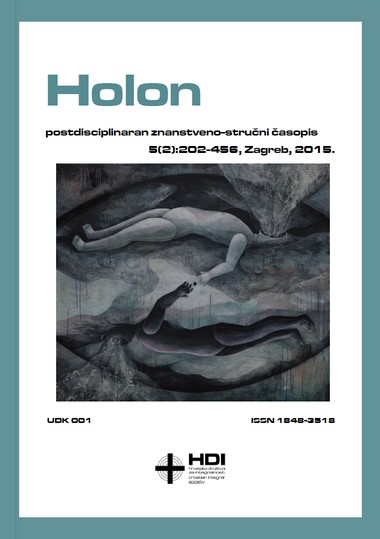
We kindly inform you that, as long as the subject affiliation of our 300.000+ articles is in progress, you might get unsufficient or no results on your third level or second level search. In this case, please broaden your search criteria.

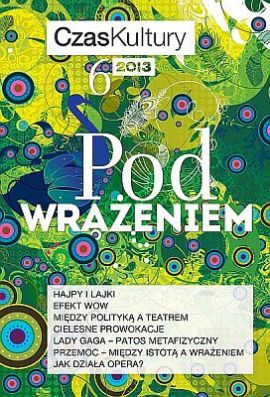

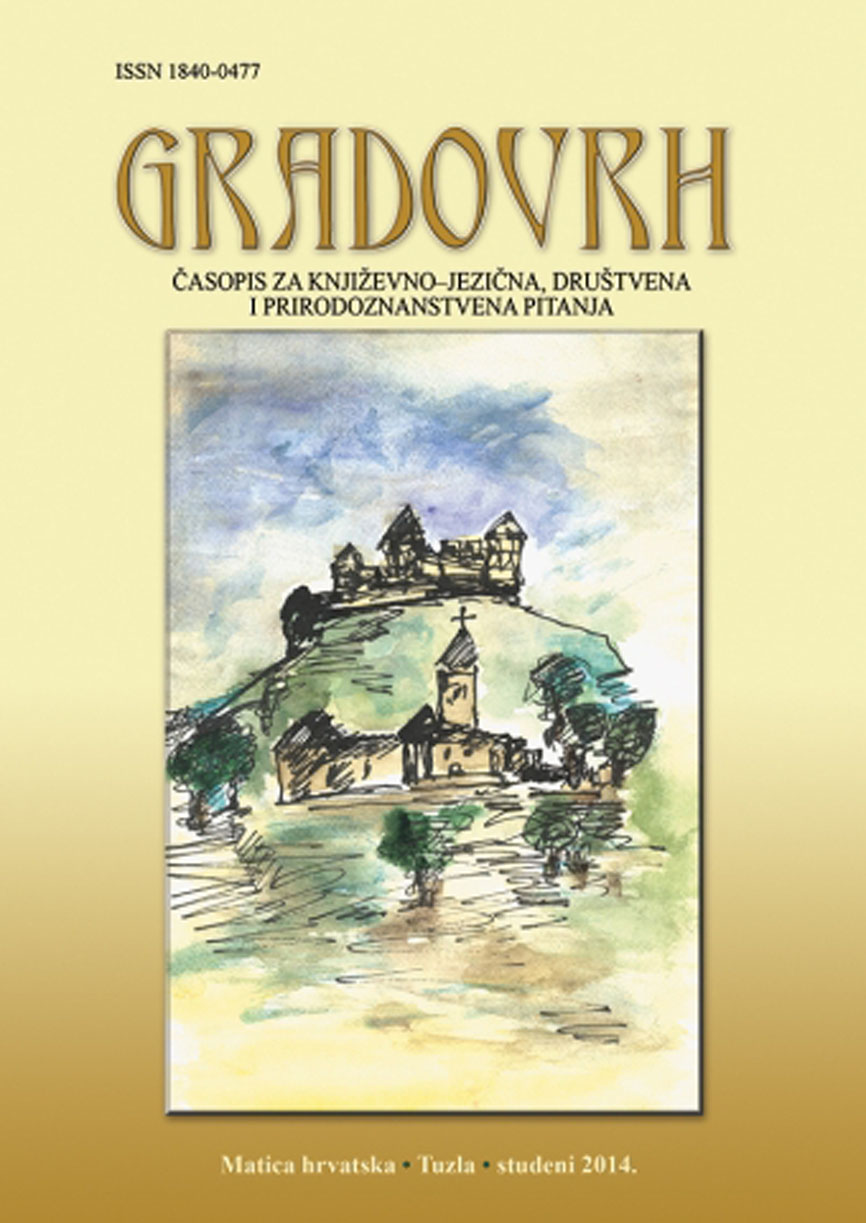
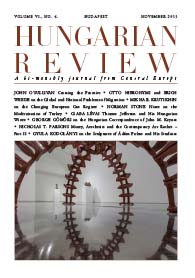
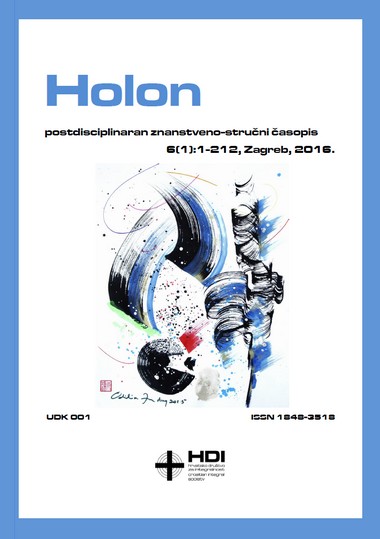
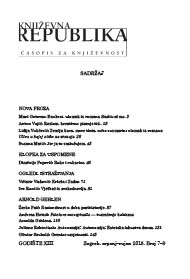
Negdje po sredini moga životnog puta, eto, i ja sam se našao u nekoj slijepoj ulici jer je pravi put, ta diritta via, bio izgubljen. Mislio sam da je u takvoj situaciji najbolje sjesti i nešto pisati. Samo ne memoare! Uostalom pitanje je da li sam ih uopće imao. Ogorčenja je bilo dosta. Ali memoara? Od čega, od ogorčenja?
More...
Svira. Melodija je razigrana, teče; ne mogu je razložiti u pojedinačne udarce po tipkama, onako kako se riječ u koju dugo buljim raspadne u niz mrtvih slova.
More...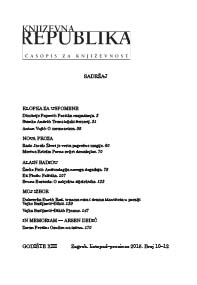
Izuzimajući slike čije sam reprodukcije gledao u monografijama, enciklopedijama ili umjetničkim časopisima, poput Boschovih kompozicija bizarnih hibridnih bića, Grunewaldovog Iskušenja svetog Antuna, Goyinog Saturna koji proždire vlastitu djecu, Dalijevo Predosjećanje građanskog rata… neposredan susret s »ljepotom ružnog« doživio sam u cetinjskoj Umjetničkoj galeriji. Među izloženim radovima crnogorskih slikara moju je pažnju posebno zaokupila slika Miodraga Dada Đurića. Na toj kompoziciji naslovljenoj Pubertet, rađenoj u plavim tonovima, naslikan je prizor koji bi zbog svoje bizarne zanimljivosti zahtijevao posebnu elaboraciju. Na toj slici dominira jedna ženska zdepasta figura predimenzionirane, hidrocefalusne glave s deformiranim licem što cijeloj kompoziciji daje dojam mračne groteske.
More...
Razgovarao sam o memoarima s jednim mojim prijateljem, baš uoči našeg mogućeg zajedničkog sloma, koji je mogao značiti i konac našeg javnog životnog Djela. Njemu je i značio. Umro je. Ja sam preživio, iako to zajedničko djelo baš i nisam nastavio.
More...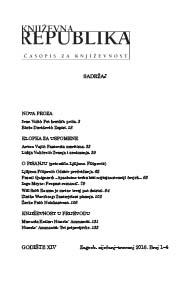
Skitnicama teško nešto možete narediti. Ne slušaju. Kad bi slušali dobro, ne bi bili skitnice, znali bi se umiliti, odlično bi moljakali, glasali kako treba, birali po narudžbi, bili bi komforno skućene ulizice. Tako je i sa psima. Ako je skitnica, neće doći kad ga zovete i mamite nekom čajnom kobasicom, ne vrti repom kad se vama svidi, ne laje na mjesec, ne laje sela radi, svojeglav je i slobodan, redovno preplašen, sladak i prljav. Takav je bio i Maximilian von der Gondhauzi. Nije bio mješanac, o ne... Zamislite da vas netko zove mješancem? Vaši roditelji se umiješali? Maximilian von der Gondhauzi nije imao pedigre, jer nije imao gazdu. Po ni jednoj fizičkoj karakteristici nije bio spektakularan pas, oko kojeg bi se otimale dokone dame potrošačkog društva, ne bi ga čak pogledale ni nevladine udruge za zaštitu životinja. Maximilian von der Gondhauzi nije bio životinja.
More...
San Antonio en la Bahía, Isla de Santa Silba, Croacia. Bilo je to na otoku Santa Silba, u uvali San Antonio. Tu smo dolazili brodovima, sidrili se i ostajali cijelo ljeto. Kad smo otkrili otok, nazvali smo ga Santa Silba, kolumbovskom gestom, jer je bio šumovit i svet. Osim toga, bilo je svjetsko prvenstvo u nogometu, baš je igrala Argentina protiv Hrvatske, pa smo preokrenuli govoriti španjolski, što nam je odlično krenulo. Televizijski prijenos utakmica mogao se pratiti samo na Šiminu brodu zvanom Autobus. Radi pristupa morali smo se ulagivati gazdi, pa smo Šimu nazivali Shimunazzi. U takvom obliku imena bilo je nešto virtuozno, a ticalo se i izgleda njegova broda, zatim izgleda njega samoga čija se kosa i brada na moru sve više kovrčala, a ticalo se i njegovih virtuoznih režija kazališnih predstava za ribe, o čemu će još biti riječi. On je nas zbirno nazivao Riquelme, fuzbalski korektno, iako malo poopćeno, budući da nas je bilo trojica takvih, pa nas je Šime dijelio po starosti, zapravo, tada još mladosti. Inače, brodovi su bili vezani uz mulić bez prava pristupa javnosti. Tu se odvijao naš ekskluzivni plemenski život.
More...
S njom započinješ život. Kao i filozofija sa sokratovskom majeutikom. Ako nije iskusna, možeš zaglaviti. Ili se roditi natraške kao prorok Muhamed i ja. No, uvijek se nađe neki sjajan mlad i plav Aškenaz liječnik što je tek započeo specijalizaciju. Spašava objema glavu: onoj koja te rađa i tebi koja se imaš roditi. Možda zato ti nemaš djece, jer si u nekom natražnjačkom izlijetanju dvostruko izašla iz izvora. Svijetu si tada rekla jedno vrlo neuobičajeno: Ne. Možda i jedino.
More...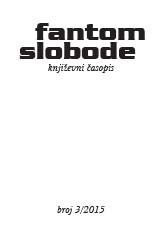
Vratio se, svakako prije nego što sam ga očekivao. Sporo je gradio svoju koloniju, razmnožavao se parazitno i okrepljujuće. Jedan od njegovih okota nekim je nevjerojatno čudnim okolnostima ponovno prešao na mene. Čak smo neko vrijeme i živjeli zajedno, rekao bih u određenom strahopoštovanju, strpljenstvu. Međusobno uvažavanje trajalo je sve dok mene, aminokiselinu, nije odlučio izjesti. Taj proces je spor, lišen strasti i neodlučnosti, poput matematike. Napao me matematički i neprestano. Tako su mi rekli liječnici. Moje nepriznavanje njegove prisutnosti trajalo je dugo, a kada sam postao svjestan njegovih namjera i odlučnosti, njegov osvajački pohod već je zauzeo popriličnu površinu mojeg teritorija.On se ne boji gotovo ničega, jer iskustvo je ipak pokazalo da ga jedna stvar može usporiti, hodanje po pločicama. Ali ne bilo kakvim pločicama, već one moraju biti kvadratične, s fugom debljine tri milimetra, zelene, masne, bolničke. Hodanje po takvim pločicama mora biti krajnje oprezno, da se parazitsko tijelo ne bi osjetilo napadnuto. Korak nikako ne smije biti veći od sedamdeset centimetara, jer onda nepotrebno razgibavamo tijelo i povećavamo napadnuti volumen. Za takvo hodanje najbolje su papuče. Tanke papuče, pamučne, kao kod bolesnika. Hodati treba oprezno, slijedeći precizne upute. Mimoilaženje s drugim ljudima na hodniku mora biti bez međusobnog gledanja u oči i bez razgovora. Uljez se treba na pločicama osjetiti usamljeno i izgubljeno.
More...
Probudio se ranije nego inače. Goga je za danas najavila čišćenje, a to je značilo da se svatko od njih mora pozabaviti svojim dijelom posla, htjelo mu se to ili ne. Njegov dio bilo je pranje prozora i podova s tim da nije smio zaboraviti na terasu, najvažniji dio stana. Terasa se, upozorila je Goga naglašavajući zadnju riječ, prlja najviše.
More...
Moj suprug je umro nedavno, nema ni tri mjeseca. Bolest ga je mljela i mrcvarila, jela mu je ono malo mesa što je imao, halapljivo i naglo, kao izgladnjela. Mogla je naći nekog jačeg i otpornijeg, nekoga tko bi joj se suprotstavio i upokorio je, mislila sam gledajući dvije duboke crne brazde ispod njegovih očiju, tu razrovanu zemlju. Njegove tanke ruke uskoro su mi djelovale poput dječjih. Nestajao je polako, a pred kraj je toliko utonuo u posteljinu, da se gotovo stopio se s njezinom bjelinom.
More...
— Ali zašto? — uspio sam procijediti dok smo sjedili na kavi. Žlicom je miješala nescafé dok su joj se savršeni, bijeli nokti caklili kao netom otkinuti od bjeline šalice. Dobio sam poriv zgrabiti njezinu ruku, približiti njeno lice ustima i zasliniti je te tako barem na kratko razbiti tu savršenu porculansku put oko koje se nikada, kako sam mislio, nije morala truditi. Gledao sam pregibe njezinog bijelog vrata s tankim srebrnim lančićem i poželio iscrtati nešto na njega flomastrom. Ili možda nožem. Njezina je kosa bila blago nakovrčana i svilena. Koliko god se druge žene trudile, bio sam siguran sam da im kose nikada ne bi mogle biti tako svilene. Tko zna kojim su se preparatima morale služiti da bi postigle takve nokte, takvu kosu, takvu kožu. No to nije bilo ni važno. Jedino što me zanimalo bilo je čime se služila Elena kada je uspjela stvoriti od mene jednog od svojih pokornih robova kojeg sada odbacuje — pažljivo, onako kako vjerojatno skida i šminku sa svojih ljubičastih očiju
More...
Rekao sam: — Mama, znaš li što se dogodilo? Rekla je: — Ne znam. Pusti me na miru. Tiho sam izašao iz sobe u kojoj je ona ostala čitati novine. Na prstima sam još osjećao ljepilo od današnjeg zadatka na likovnom. Lijepili smo učenike od kolaž papira po zidu hodnika. Nataša je rekla da najviše ličim učeniku s naočalama jer izgleda kao štreber. Nisam ništa rekao, samo sam se okrenuo na drugu stranu i nastavio lijepiti crni papir. Zapravo, dugačku crnu kosu jedne učenice koja je tako lijepo ispala da su rekli da je to Suzana, iako zapravo nije izgledala kao ona jer Suzana nije toliko lijepa — ne kao Iva — ali zato je popularna.
More...
Trčimo bosi po ulici. Ne mogu vjerovat da sam se dala nagovorit na ovo. Vrući asfalt me grize za kožu, stopala mi se smanjuju. Odvajam se od njega i pokušavam ga prestići. Opet mi je pet i želim ih sve ostaviti iza sebe, imati crne pobjedničke noge. On ne razumije ovu igru. On samo razumije želju, želju da me dohvati. Dotrči do mene, uhvati me za ruku i gurne u prvi portun.
More...
Bilo je tek sedam, a ja sam već dva sata bio u pogonu. Nikako nisam mogao razumjeti zašto mu se tako žuri i što mu ja, pobogu, trebam. Pogledao sam ga krajičkom oka i vidio da je utonuo u sjedalo zatvorenih očiju. Baš kad sam pomislio da spava, spazio sam da si desnom rukom polako masira natkoljenicu. Ništa nisam rekao, samo sam nastavio gledati cestu ispred sebe.
More...